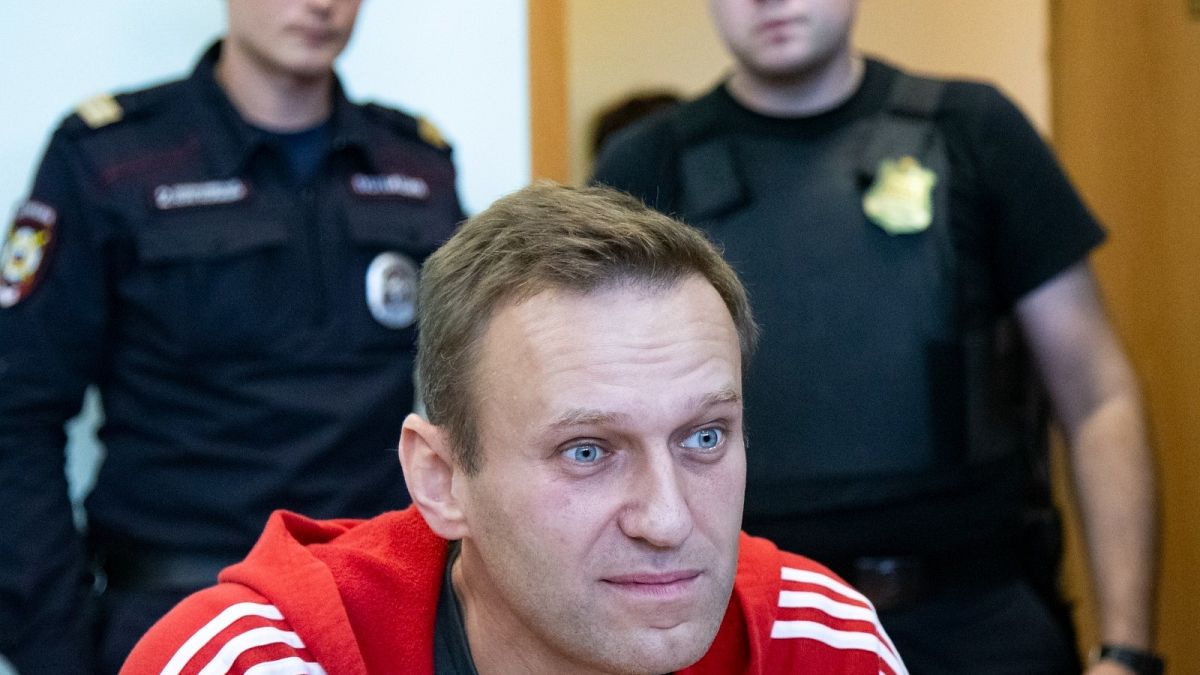The Kremlin mantains it didn't poison Alexei Navalny, saying the activist suffers from 'persecution delirium'.
Russia on Tuesday announced sanctions against EU officials, in retaliation for the entry-ban imposed in October on six Russian individuals following the poisoning of 44-year-old opposition activist Alexei Navalny.
The Russian authorities said they "expanded the list of representatives of EU member countries banned from entering the territory of the Russian Federation". They didn't release a list of names.
The announcement comes a day after the broadcast of a telephone conversation in which Navalny duped an officer of the Russian Federal Security Service (FSB) into telling him how exactly they had allegedly tried to poison him, a phone call recording obtained by Bellingcat reveals.
The investigative outlet and its partners published information about a recorded phone call between Navalny and Konstantin Kudryavtsev, one of the FSB officers who travelled to Omsk in the aftermath of the assassination attempt.
FSB officer Konstantin Kudryavtsev reportedly thought the 49-minute long call was a debriefing, not knowing that Navalny was on the other end of the line.
According to Navalny's team, the phone line was disguised as being originated from the FSB headquarters and Kudryavtsev thought he was speaking with a high-ranking official.
In a statement, the FSB said: "The video with [this] telephone conversation is fake," adding that the so-called "investigation" constitutes a "planned provocation", which couldn't have been possible "without the technical and organisational support of foreign special services."
The statement added that the practice of disguising a number was well known in the service.
Navalny had fallen ill on a flight from Tomsk to Moscow on August 20 of this year. He was later transferred to a clinic in Berlin for treatment.
In September, the German government said there was "unequivocal proof of a chemical nerve agent from the Novichok group" in his body.
During the call, Kudryavtsev told Navalny that the nerve agent was put into the underpants so that it could be soaked up by the skin.
Russia denies responsibility
Russia has repeatedly denied any responsibility for Navalny's poisoning, stating that no Novichok agent was found in his body when he was treated in Omsk. Moscow has also said that any accusations against them are part of a wider Western campaign.
In his annual press briefing, Russia's President Vladimir Putin had denied Russia's involvement, saying that if the FSB wanted Navalny dead "they would have finished the job”.
But just last week, Bellingcat and its investigative partners published a report that named and identified members of the FSB who had been surveilling and following Navalny for years.
Bellingcat says it has been able to confirm key allegations made on the phone call. The investigative magazine also revealed ethical considerations that went into the method of obtaining new information.
The investigation and records
According to Bellingcat and its media partners CNN, Der Spiegel, The Insider, and El Pais, thousands of phone records, flight manifests and other documents were used to track a team of toxin experts tasked with killing Navalny.
Aric Toler, the head of research at Bellingcat, told Euronews there is a wealth of data that is being sold and traded across Russia, such as passenger information for flights, phone records, and passport details.
"The Russian data black market is vast, you can buy and acquire almost any kind of information you can imagine," said Toler.
"We can access these data markets online very easily, such as through bots on popular messaging services like Telegram, which provided us with so much information.
"Russia has very loose private restrictions in both legislation and practices, and also has vast data collection on citizens."
The investigation also worked directly with Navalny and was provided with his personal travel history, which they used alongside dozens of leaked databases the website acquired in recent years.
Citing telecoms and travel records, Bellingcat also says that the poisoning was likely "mandated at the highest echelons of the Kremlin".
"Given this implausible series of coincidences, the burden of proof for an innocent explanation appears to rest purely with the Russian state."
The investigation does not establish that any of these agents were in direct contact with Navalny, nor that any action was taken or order given.
Euronews has contacted the FSB and Russia's Interior Ministry for a statement on the Bellingcat findings but had not received a response at the time of publication.
(Watch more on this story in the above player).
